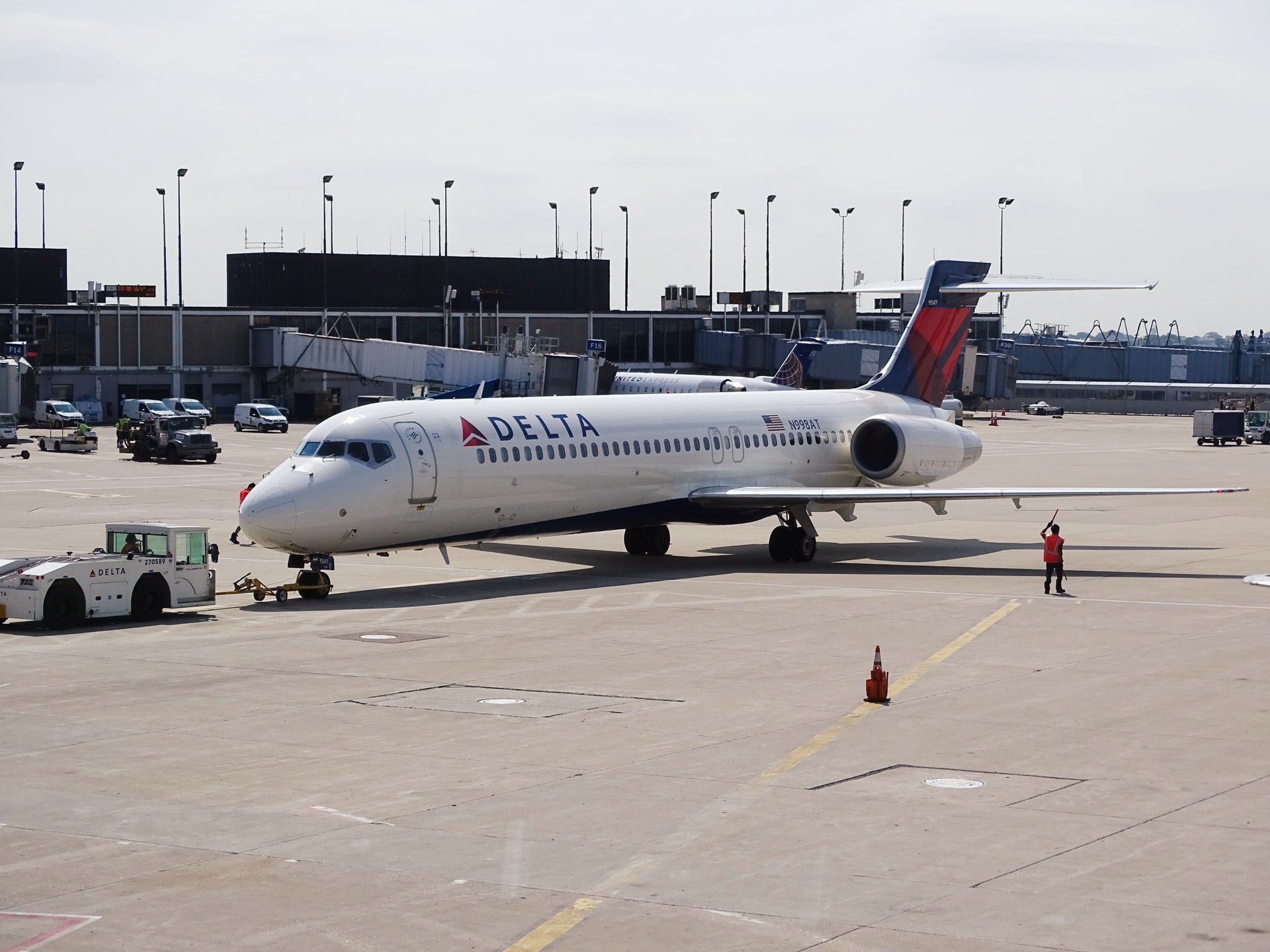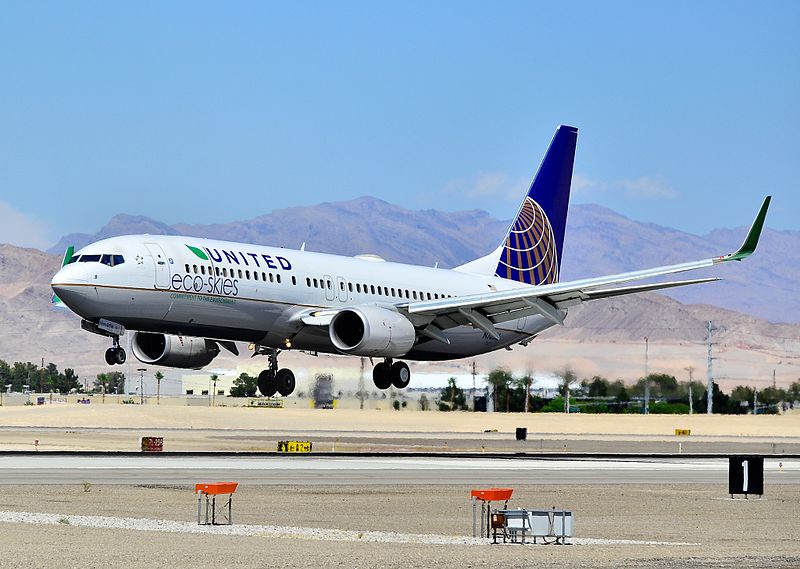Opinion | What would a Biden presidency mean for the aviation industry?
Commercial
15 November 2020
Update: December 31, 2021
After almost one year of Biden's presidency, it's quite interesting to read back this article and see how things have played out. Amid a massive surge in COVID-19 cases due to the Omicron variant, the aviation industry has been plagued by staffing shortages (common throughout many industries) and resulting mass flight cancellations during one of the busiest travel seasons of the year.
When it comes to some of the aspects of the aviation industry I discussed in last year's article, they have indeed come into fruition. The Infrastructure Investment and Jobs Act of 2021, better known as the "Bipartisan Infrastructure Bill," allocates $15B towards airport infrastructure through the year 2030. Recently, United Airlines made another huge step towards sustainability in aviation operations: they flew the world's first flight where one engine operated on 100% pure sustainable aviation fuel made from agricultural waste (the other engine was operated using traditional Jet-A in order to meet FAA regulations).
However, the COVID-19 pandemic still rages on, and the aviation industry struggles as a result. However, this time, the difficulty is not due to insufficient demand, but rather, staffing issues. After many airline employees retired en masse at the beginning of the pandemic, as flying picks up again, airlines are increasingly short on crewmembers to work flights. Employees have left for a multitude of reasons: switching industries, being stuck in quarantine, etc. As we know, airline schedules are highly interdependent on a multitude of factors, and a reduction in staff has wreaked havoc on airlines that were already on shaky ground, resulting in many canceled flights and stranded passengers.
The political nature of almost any COVID-19 response measure has made it extremely difficult to create an organized public health response. Widespread skepticism of the current administration, CDC, and other public health officials and agencies has caused recommendations to be torn apart with intense scrutiny, and the Omicron variant, which may bypass immune response created by double-vaccination, has become unreasonably politicized at the price of public health.
Economically speaking, 2021 has not been a good year. With a pandemic that seemed to be ending only to begin breaking records yet again, staffing shortages in many industries, and an unprecedented inflation rate, things are looking bleak for the year to come. But, we will see what the new year has in store for both the aviation industry and the American public.
Original article (November 15, 2020)
After a long, drawn out and intense election week, Joe Biden is now the president-elect of the United States. What does this mean for the aviation industry?
When nations began locking down due to COVID-19 in March 2020, airlines were hit especially hard by the resulting economic downturn and sharp drop in travel demand. Airlines began to quickly burn cash as their operating costs far exceeded revenue. On March 27, 2020, the Coronavirus Aid, Relief, and Economic Security Act (CARES) was passed in an attempt to stabilize the economy and prevent job losses, among other causes.
The law allocated up to $25B for passenger airlines, $4B for cargo airlines, and $3B for contractors; the money was to be used to ensure that employees could keep their jobs and benefits. One of the conditions of the bailout was that companies "refrain from conducting involuntary furloughs or reducing pay rates and benefits until September 30, 2020" (§ 4114).
The three major American legacy airlines - American Airlines, Delta Air Lines, and United Airlines - received $5.98B, $5.6B, and $5.1B respectively. Nevertheless, as the Payroll Support Program period ended, American and United collectively furloughed over 32,000 employees on October 1, 2020. This doesn't even include other mainline airlines, regional airlines, or low cost carriers.

Joseph R. Biden is now the 46th president-elect of the United States. Photo by David Lienemann; public domain.

A Delta Boeing 717 at Chicago O'Hare Airport. Photo by Miguel Ángel Sanz on Unsplash.
Without pointing fingers about why airlines lacked money to support their employees in a notoriously cyclical industry, it’s clear that American families are suffering. Joe Biden has committed to extending pandemic unemployment benefits, and helping currently employed Americans remain at work. For now, we need congress to put political differences aside and pass a second stimulus bill to help those being hit hardest by COVID-19 related economic difficulties.
The airline industry is one of the few remaining heavily unionized industries. Negotiations between airline employee unions and airline executives have allowed some airlines to avoid furloughs completely. Biden supports "strengthening public and private sector unions and helping all workers bargain successfully for what they deserve".
However, we should all be aware that these are all band-aid solutions that don’t fix the root cause of our problems. Until the COVID-19 pandemic is under control (which it certainly isn’t), our economic struggles will continue. Travel demand won’t come back for a while, so airlines are now tasked with trying to convince their customers that flying is safe.
We cannot deny that the current president has failed to effectively take control of the COVID-19 pandemic. Constant anti-mask rhetoric, downplaying, and distrust in experts has led a public health crisis to become politicized and divisive. Unfortunately, a lame duck president will likely be even less motivated to take control of the current situation. COVID-19 cases are breaking records daily, with over two hundred and forty-two thousand American lives lost. The president no longer cares about the pandemic, and to him, there doesn’t exist a reason for him to care. He hides behind his Twitter account, sowing distrust in the results of the election, refusing to concede, and completely missing an opportunity to fix his damaged legacy.
Joe Biden, on the other hand, has a clear cut plan for tackling the COVID-19 pandemic. He will listen to the experts and scientists. He will make well informed decisions in the name of public health while making efforts to reduce economic harm. No, Joe Biden will not shut down the country again:
Social distancing is not a lightswitch. It is a dial. Joe Biden will direct the CDC to provide specific evidence-based guidance for how to turn the dial up or down relative to the level of risk and degree of viral spread in a community, including when to open or close certain businesses, bars, restaurants, and other spaces; when to open or close schools, and what steps they need to take to make classrooms and facilities safe; appropriate restrictions on size of gatherings; when to issue stay-at-home restrictions.
A Biden administration could also mean improved airport infrastructure. The Biden campaign issued the following statements:
Aviation and airports are major drivers for the U.S. economy, but our airports are in desperate need of improvement. As president, Biden will double funding for airports through the Federal Aviation Administration’s (FAA) Airport Improvement Program, and launch a new competitive grant program for major airport renovation projects. At the same time, he’ll also make sure that the U.S. maintains the world’s safest aviation system, working with the FAA to fully implement its NextGen technology system, to improve safety, modernize our airspace, and reduce delays and cancellations. Biden will also ensure that U.S. airlines’ operating, repair, and maintenance facilities overseas adhere to our nation’s highest safety standards.
--
Biden will create millions of good, union jobs building and upgrading a cleaner, safer, stronger infrastructure – including smart roads, water systems, municipal transit networks, schools, airports, rail, ferries, ports, and universal broadband access – for all Americans, whether they live in rural or urban areas.
Improving airport infrastructure will allow for better passenger experiences in airports, as well as job opportunities for many. Improved airports could also be a contributing factor in increasing travel demand.
One of the major talking points during this election season was the environment and clean energy. It’s no secret that air travel is a major source of pollution. In fact, aviation itself accounts for 2.4% of the world’s carbon dioxide emissions. Aside from CO2 emissions, jet engines produce harmful combustion byproducts, as well as water vapor which is also a greenhouse gas that contributes heavily to global warming.
No commercial aircraft type currently runs fully on alternative energy, and it will take a long time to get to that point. One notable example of clean energy in aviation is United Airlines’ partnership with LAX airport in using biofuels on commercial flights. This is a very specific case, and most aircraft still run on fuels derived from crude oil.
During the second presidential debate on October 22, 2020, Joe Biden said that he wanted to "transition from the oil industry". While investing in sustainable and clean energy sources is paramount to mitigating effects from the ongoing global climate crisis, we must acknowledge that the aviation industry depends heavily on the oil industry. Although a blatant ban on fossil fuels is near impossible, consider the impact it will have on the aviation industry in particular.

A United Airlines 737-800 at McCarran International Airport in Eco-Skies livery. Photo by Tomas Del Coro, CC BY-SA 2.0
The aviation industry is incredibly complex. It can be affected by the largest or smallest change in demand, fuel prices, or a host of other dependencies. Flight is crucial to our global economy and society, yet it is mostly ignored by politicians. They need to understand that their actions and decisions will be felt by millions of Americans who are employed in various aviation related fields.
As a final note, most of us are painfully aware of the lofty goals and promises politicians make, most of which will never be fulfilled. This is probably true for our incoming president. We should also keep in mind that Joe Biden will not be sworn into office until January 20, 2021 given a peaceful transfer of power.
References
- CARES Act, H.R. 748 § 4112-4120 (2020). https://www.govinfo.gov/content/pkg/PLAW-116publ136/html/PLAW-116publ136.htm
-
Biden Campaign on:
- Airline emissions
- Airport infrastructure
- COVID-19
- Workers' Unions
- Working families and pandemic related economic hardships
- Chappel, Bill and Schaper, David. "United and American Airlines Tell 32,000 Employees They're Now On Furlough". National Public Radio, 1 October 2020. https://www.npr.org/sections/coronavirus-live-updates/2020/10/01/919029571/united-and-american-airlines-tell-32-000-employees-theyre-now-on-furlough
- "Donald Trump & Joe Biden Final Presidential Debate Transcript 2020". October 20, 2020. Transcript, rev.com. https://www.rev.com/blog/transcripts/donald-trump-joe-biden-final-presidential-debate-transcript-2020
- Johns Hopkins University of Medicine. Coronavirus Resource Center. Accessed 14 November 2020. https://coronavirus.jhu.edu/map.html
- Overton, Jeff. "Fact Sheet: The Growth in Greenhouse Gas Emissions from Commercial Aviation". Environmental and Energy Study Institute, October 17, 2019. https://www.eesi.org/papers/view/fact-sheet-the-growth-in-greenhouse-gas-emissions-from-commercial-aviation
- U.S. Department of the Treasury. "Paroll Support Program Payments". Accessed 14 November 2020. https://home.treasury.gov/policy-issues/cares/preserving-jobs-for-american-industry/payroll-support-program-payments
- "United Airlines Launches First-ever Jet Biofuels Initiative at LAX with Flight to San Francisco". Los Angeles World Airports, 2016. https://www.lawa.org/en/News%20Releases/2016/News%20Release%20122
- United Airlines. "Expanding our commitment to powering more flights with biofuel". May 22, 2019. https://hub.united.com/united-biofuel-commitment-world-energy-2635867299.html